A review of a decade of lessons from one of the world's largest MPAs: conservation gains and key challenges
October 2020
Graeme C. Hays, Heather J. Koldewey, Samantha Andrzejaczek, Martin J. Attrill, Shanta Barley, Daniel T. I. Bayley, Cassandra E. Benkwitt, Barbara Block, Robert J. Schallert, Aaron B. Carlisle, Pete Carr, Taylor K. Chapple, Claire Collins, Clara Diaz, Nicholas Dunn, Robert B. Dunbar, Dannielle S. Eager, Julian Engel, Clare B. Embling, Nicole Esteban, Francesco Ferretti, Nicola L. Foster, Robin Freeman, Matthew Gollock, Nicholas A. J. Graham, Joanna L. Harris, Catherine E. I. Head, Phil Hosegood, Kerry L. Howell, Nigel E. Hussey, David M. P. Jacoby, Rachel Jones, Sivajyodee Sannassy Pilly, Ines D. Lange, Tom B. Letessier, Emma Levy, Mathilde Lindhart, Jamie M. McDevitt-Irwin, Mark Meekan, Jessica J. Meeuwig, Fiorenza Micheli, Andrew O. M. Mogg, Jeanne A. Mortimer, David A. Mucciarone, Malcolm A. Nicoll, Ana Nuno, Chris T. Perry, Stephen G. Preston, Alex J. Rattray, Edward Robinson, Ronan C. Roche, Melissa Schiele, Emma V. Sheehan, Anne Sheppard, Charles Sheppard, Adrian L. Smith, Bradley Soule, Mark Spalding, Guy M. W. Stevens, Margaux Steyaert, Sarah Stiffel, Brett M. Taylor, David Tickler, Alice M. Trevail, Pablo Trueba, John Turner, Stephen Votier, Bry Wilson, Gareth J. Williams, Benjamin J. Williamson, Michael J. Williamson, Hannah Wood & David J. Curnick
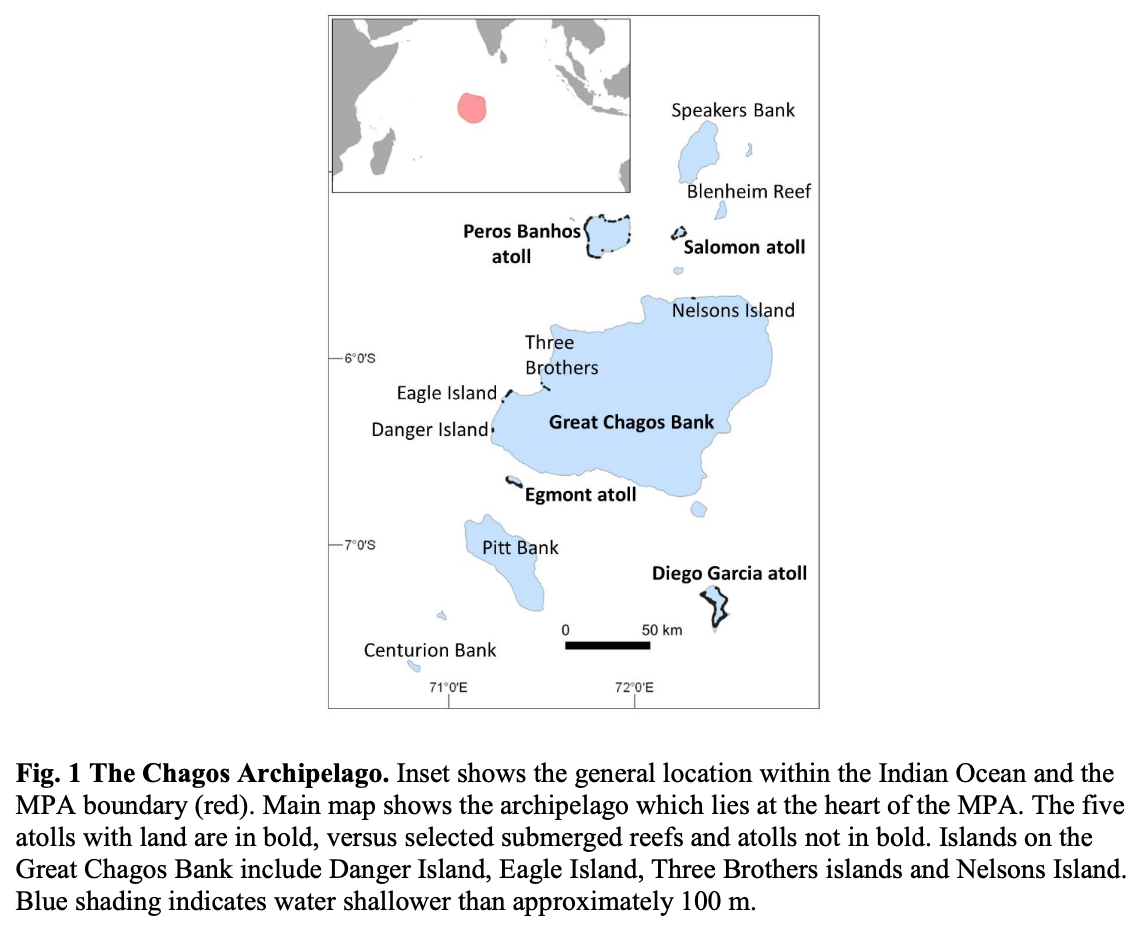
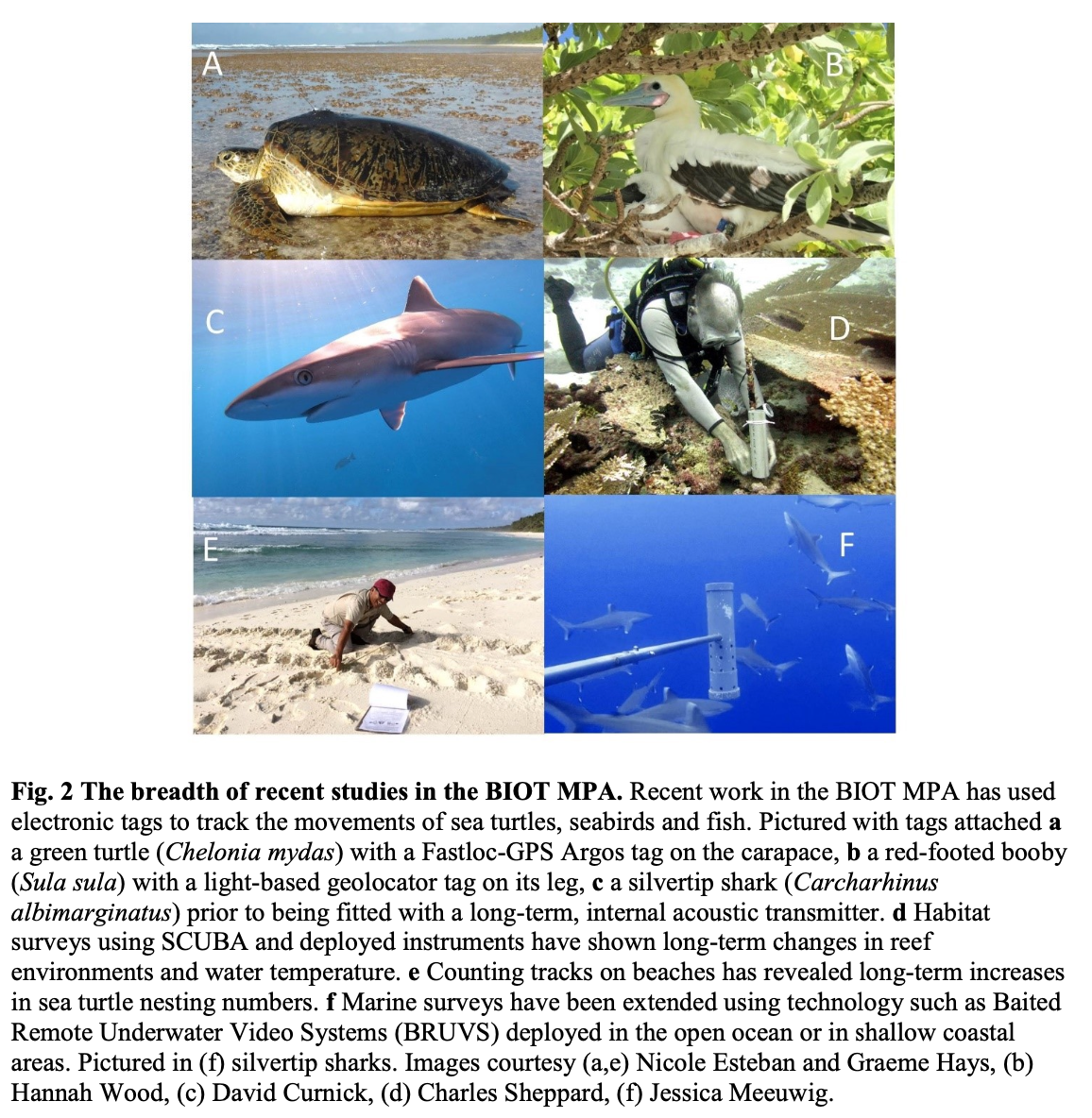
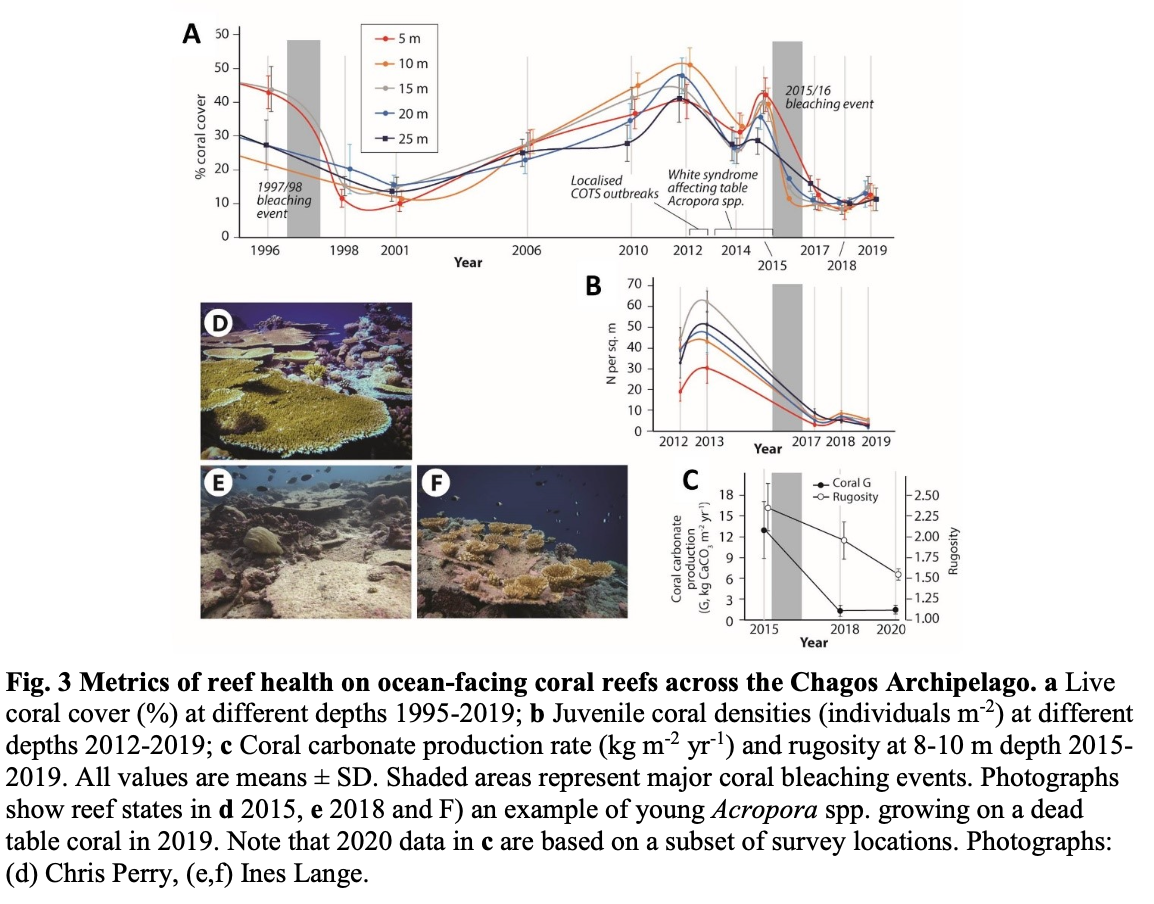
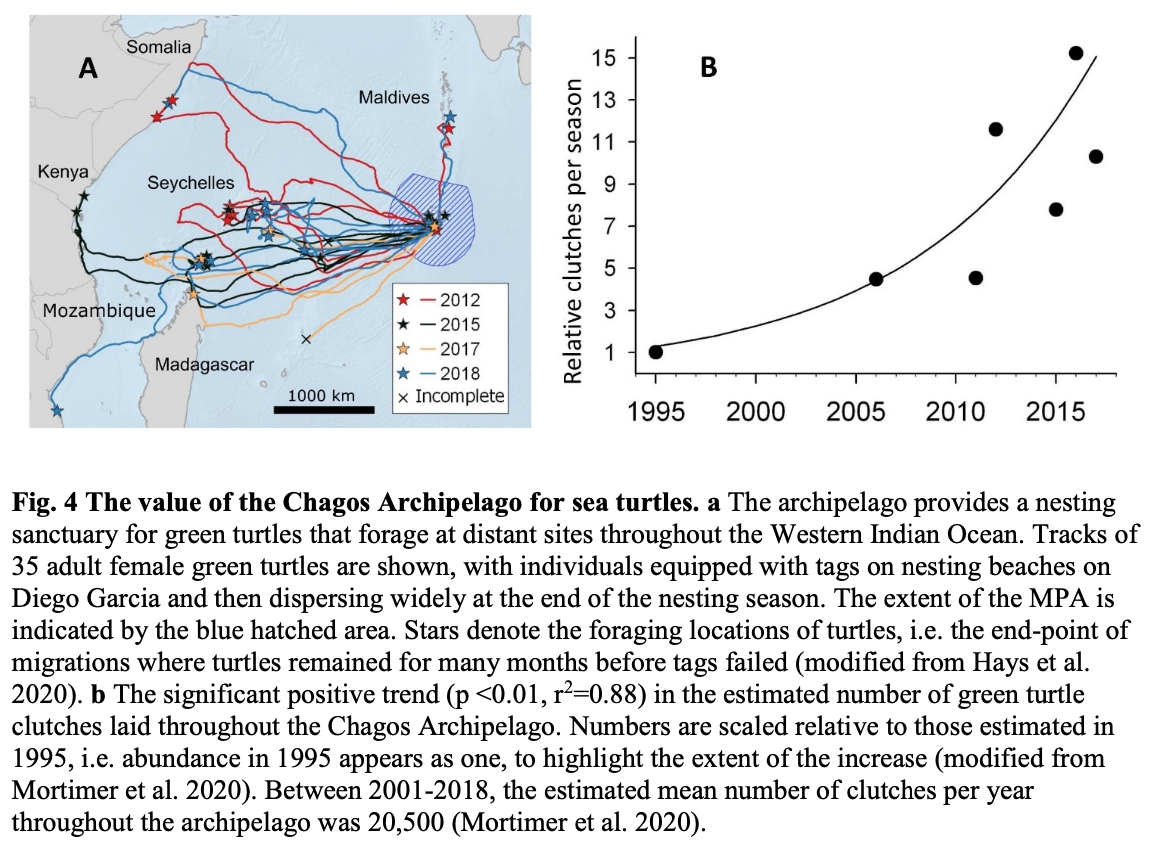
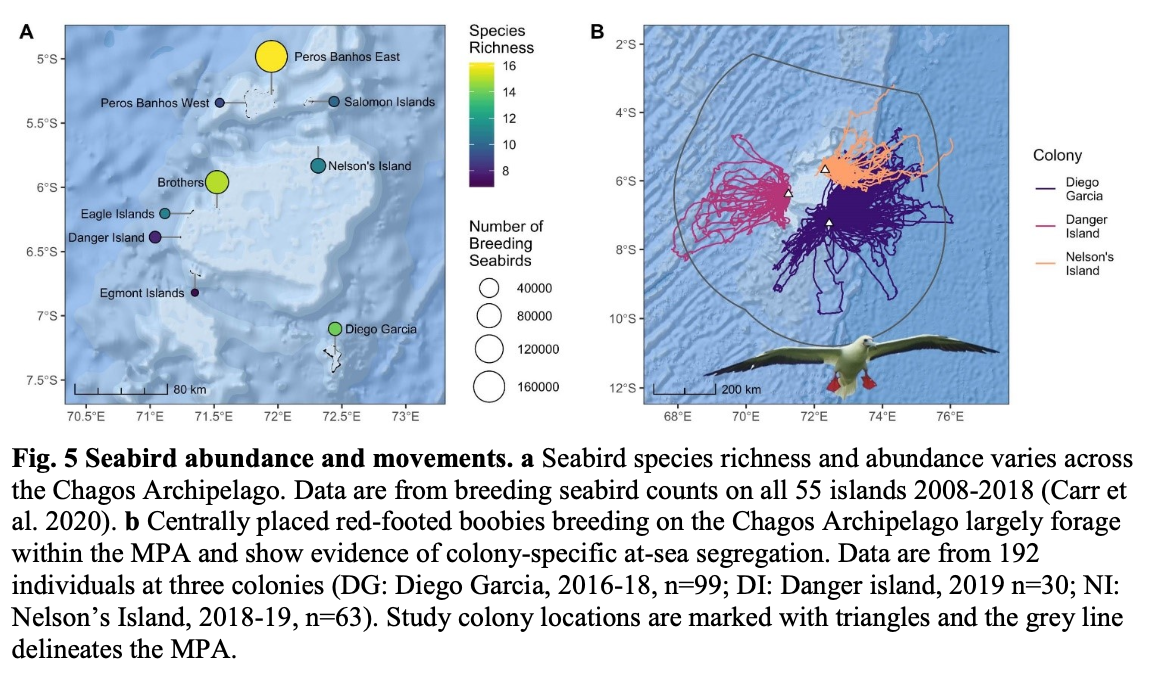
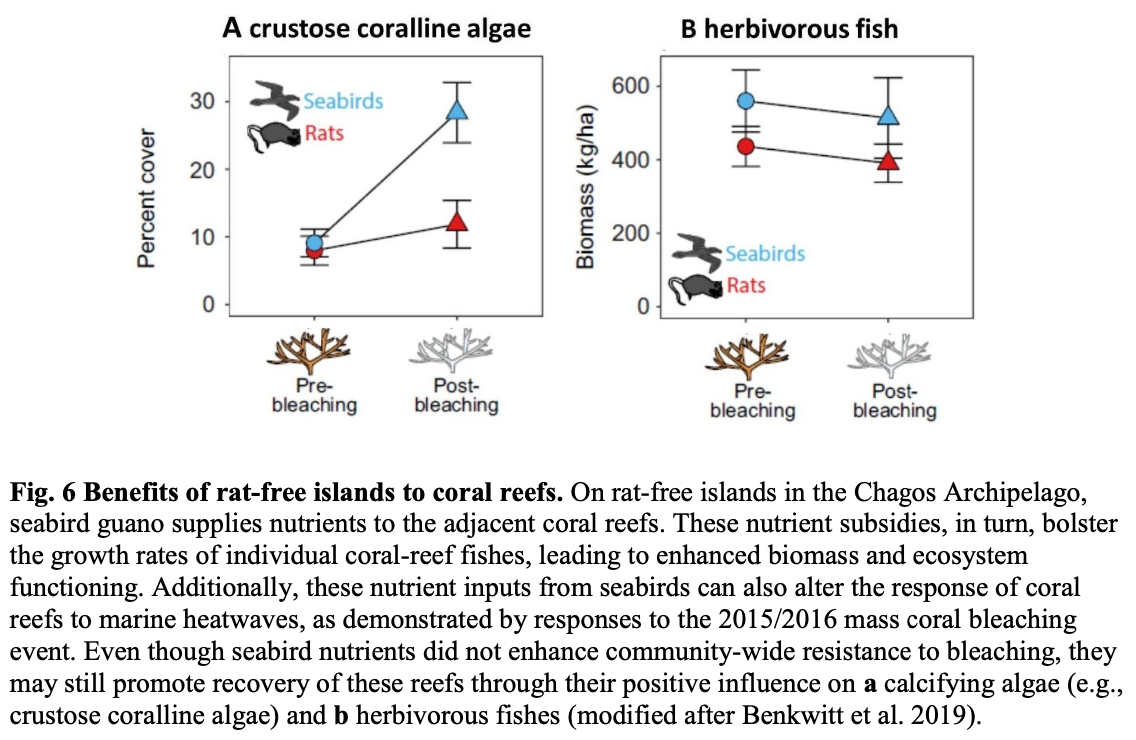
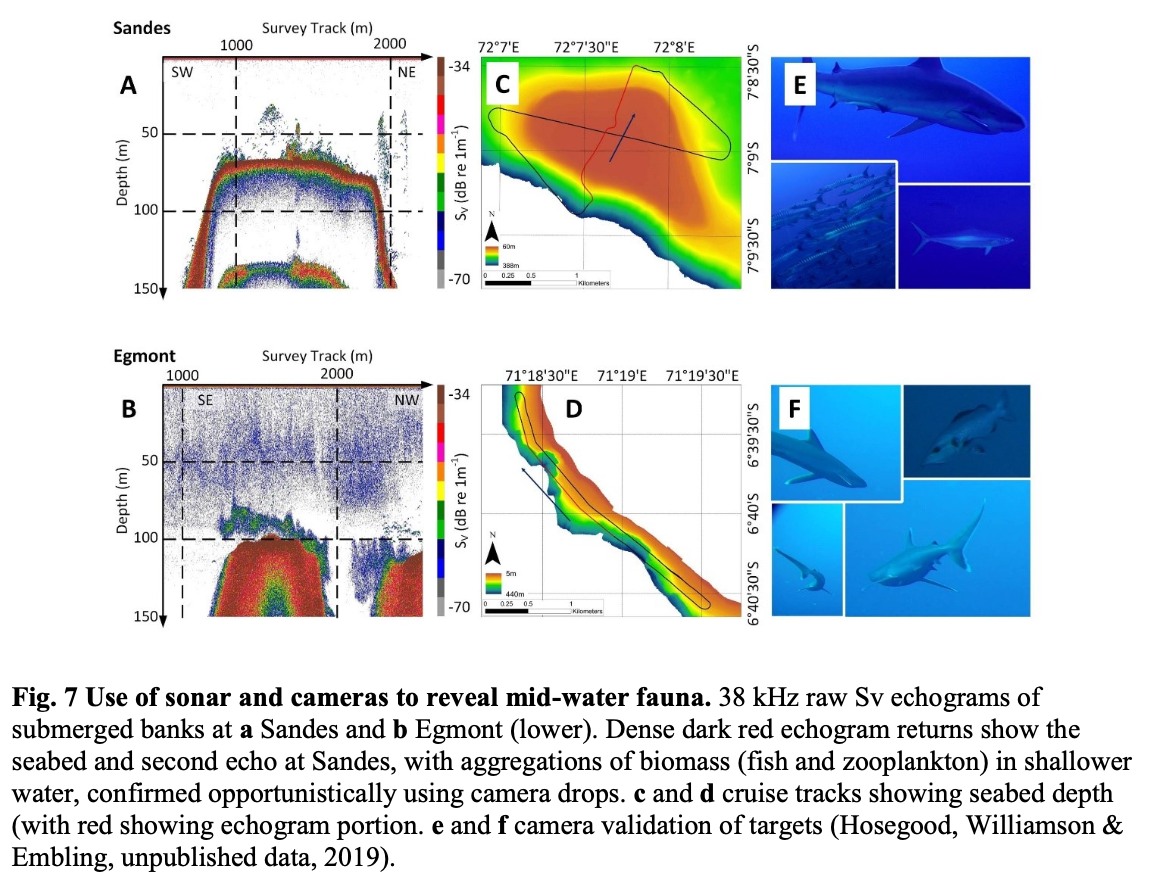
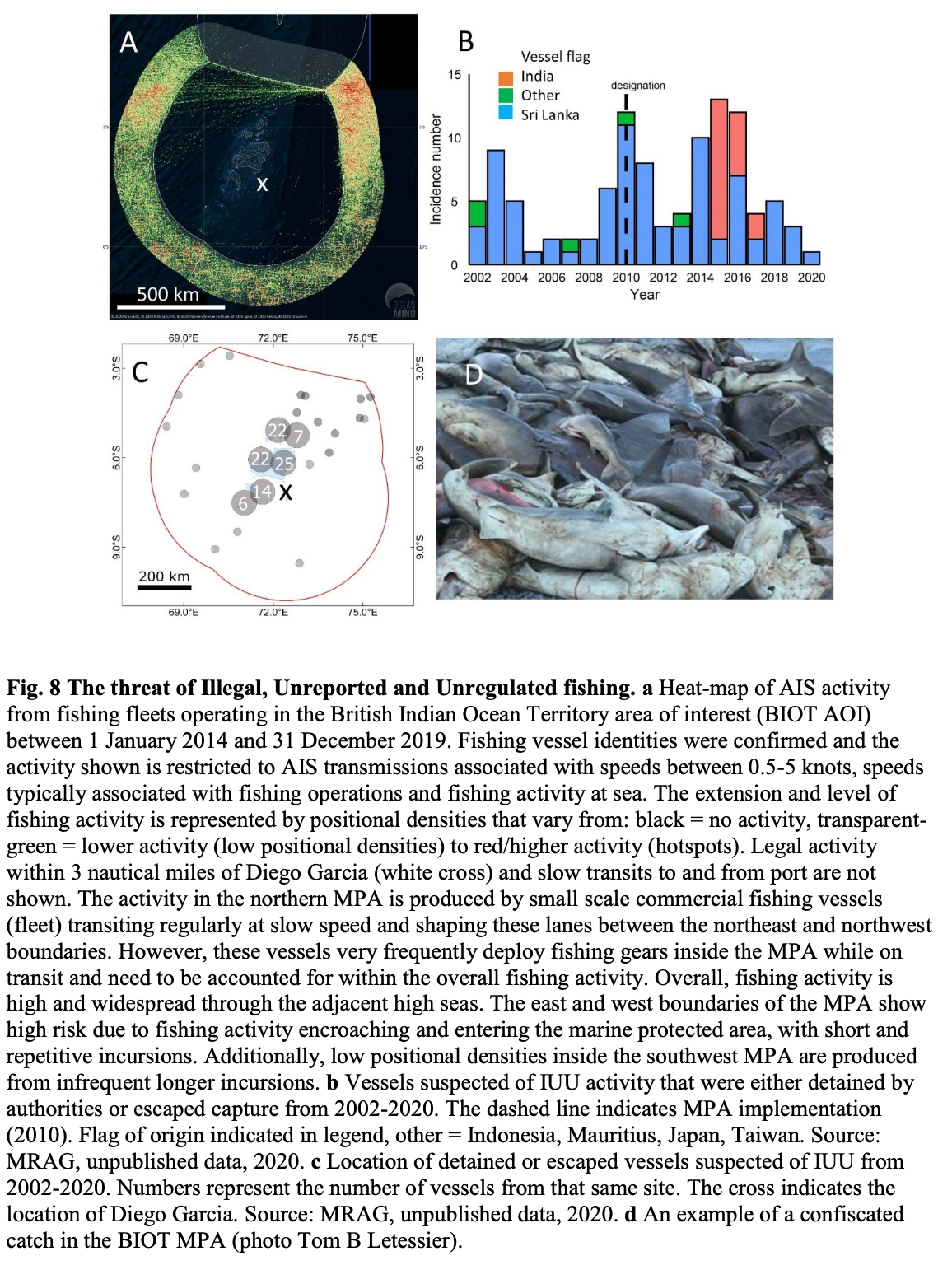
Summary: The British Indian Ocean Territory (BIOT) is one of the largest marine protected areas (MPAs) globally, consisting of atolls and deep oceanic waters. Research conducted in the past decade reveals positive outcomes, including increased sea turtle abundance, nesting seabird populations, and high fish abundance. Some marine species consistently breed and forage within the MPA, indicating long-term protection potential. However, challenges such as global heating events and illegal fishing activities pose threats to the MPA, impacting both reef and pelagic fish populations. This research provides valuable insights into remote ecosystem functioning and responses to climate-driven stressors.
Abstract
“Given the recent trend towards establishing very large marine protected areas (MPAs) and the high potential of these to contribute to global conservation targets, we review outcomes of the last decade of marine conservation research in the British Indian Ocean Territory (BIOT), one of the largest MPAs in the world. The BIOT MPA consists of the atolls of the Chagos Archipelago, interspersed with and surrounded by deep oceanic waters. Islands around the atoll rims serve as nesting grounds for sea birds. Extensive and diverse shallow and mesophotic reef habitats provide essential habitat and feeding grounds for all marine life, and the absence of local human impacts may improve recovery after coral bleaching events. Census data have shown recent increases in the abundance of sea turtles, high numbers of nesting seabirds and high fish abundance, at least some of which is linked to the lack of recent harvesting. For example, across the archipelago the annual number of green turtle clutches (Chelonia mydas) is ~ 20,500 and increasing and the number of seabirds is ~ 1 million. Animal tracking studies have shown that some taxa breed and/or forage consistently within the MPA (e.g. some reef fishes, elasmobranchs and seabirds), suggesting the MPA has the potential to provide long-term protection. In contrast, post-nesting green turtles travel up to 4000 km to distant foraging sites, so the protected beaches in the Chagos Archipelago provide a nesting sanctuary for individuals that forage across an ocean basin and several geopolitical borders. Surveys using divers and underwater video systems show high habitat diversity and abundant marine life on all trophic levels. For example, coral cover can be as high as 40–50%. Ecological studies are shedding light on how remote ecosystems function, connect to each other and respond to climate-driven stressors compared to other locations that are more locally impacted. However, important threats to this MPA have been identified, particularly global heating events, and Illegal, Unreported and Unregulated (IUU) fishing activity, which considerably impact both reef and pelagic fishes.”
Author Affiliations
Deakin University, Centre for Integrative Ecology
Zoological Society of London
Centre for Ecology and Conservation, College of Life and Environmental Sciences, University of Exeter
Hopkins Marine Station, Stanford University
School of Biological and Marine Sciences, University of Plymouth
Minderoo Foundation
School of Biological Sciences, The University of Western Australia
Centre for Biodiversity and Environment Research, University College London
Lancaster Environment Centre, Lancaster University
School of Marine Science and Policy, University of Delaware
Institute of Zoology, Zoological Society of London
Hatfield Marine Science Center, Oregon State University
Department of Life Sciences, Imperial College London
Earth System Science, Stanford University
OceanMind Limited, Harwell Innovation Centre
Department of Biosciences, Swansea University
Department of Fish and Wildlife Conservation, College of Natural Resources and Environment
The Manta Trust
Department of Zoology, University of Oxford
Department of Integrative Biology, University of Windsor
School of Ocean Sciences, Bangor University
Geography, College of Life and Environmental Sciences, University of Exeter
School of Biological Sciences (M092), The University of Western Australia
Civil and Environmental Engineering, Stanford University
Australian Institute of Marine Science, Indian Ocean Marine Research Centre, The University of Western Australia
Center for Ocean Solutions, Stanford University
NERC National Facility for Scientific Diving, Scottish Association for Marine Science
Tritonia Scientific Ltd
Department of Biology, University of Florida
P.O. Box 1443, Victoria, Mahé, Seychelles
Interdisciplinary Centre of Social Sciences (CICS.NOVA), School of Social Sciences and Humanities (NOVA FCSH), NOVA University Lisbon
School of Life Sciences, University of Warwick
Conservation Science Group, Department of Zoology, University of Cambridge
Environment and Sustainability Institute, University of Exeter
Environmental Research Institute, University of the Highlands and Islands
Department of Geography, King’s College London
Funded by
Bertarelli Foundation
Darwin Foundation
TeachGreen
Garfield Weston Foundation
Overseas Territories Environment Programme
Darwin Initiative
Selfridges & Co.
JSF Pollitzer Charitable Trust
The Rufford Foundation
Ernest Kleinwort Charitable Trust
Chagos Conservation Trust
